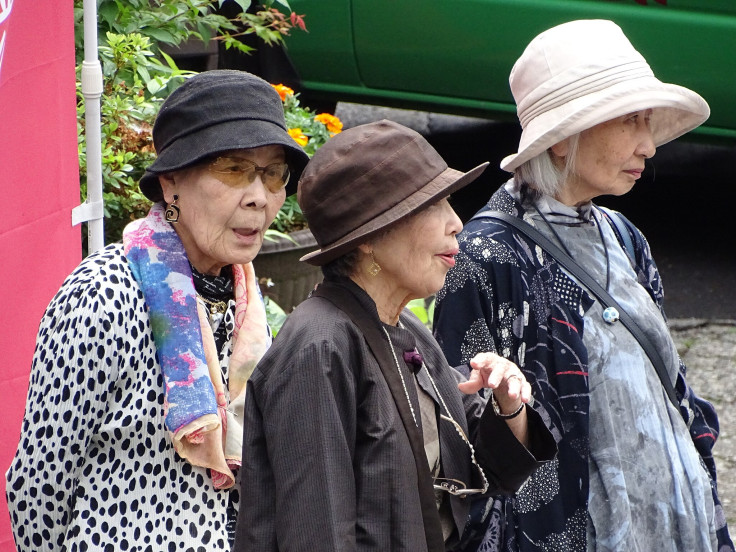Here Is Why People In Japan Have Longer Life Expectancy
Japan has the world's longest life expectancy due to a significant decrease in mortality from a number of diseases.

Japan has the world's longest life expectancy and is home to the world's longest-living people. Several experts and studies over the years have attributed this to a well-balanced diet rich in nutrition.
LongeviQuest, an outfit that verifies the ages of the world's oldest people, spoke to four supercentenarians to get to know the secret behind such longevity.
Yumi Yamamoto, the president of LongeviQuest, said that she observed several old people over the years and found that most of them maintained good habits such as not overeating, sleeping on time, and not doing anything in excess, per a report in Business Insider.
"What I've noticed in these supercentenarians is that they're very disciplined and even strict on themselves in terms of the regimentation of their lifestyles," she said.
"They don't do anything to excess, and that goes not just for food things and drink but also not staying up all night," she said.
Kane Tanaka, a Japanese woman certified as the oldest person in the world by the Guinness World Records in 2019, passed away at the age of 119 last year.
Her family had then said that she had a sweet tooth and would often enjoy chocolates and soda. However, she was not addicted to these things and would consume them in moderation.
While another supercentenarian, Misao Okawa, who died in 2015 at the age of 117, attributed her longevity to a diet of eating sushi and having at least eight hours of sleep.
"Eat and sleep and you will live a long time. You have to learn to relax," she told the Telegraph.
Yamamoto added that the most common thing among the supercentenarians was their habit of "hara hachi bu"—eating only until 80 per cent full.
"There's a saying in Japanese, which says you should only eat until you're 80 per cent full, so you should leave space at the end of a meal," Yamamoto said. They also include a lot of movement in their lifestyle. She further highlighted that having a balance in life and routine also plays a significant role in having a long healthy life.
The big picture:
Japan was recently ranked as the world's healthiest country. It has an extremely low obesity rate, at just 3.6 per cent of the population. The low obesity rate and high life expectancy have been attributed to their eating habits.
Japanese are not big meat eaters. They consume less dairy products, sugar, red meat, and potatoes and eat more fish and seafood, according to a study published in the journal Nature.
The study added that the country has the world's longest life expectancy due to a significant decrease in mortality from infectious diseases, cerebrovascular disease, and pneumonia after World War II.
In 2016, a study published in the journal BMJ claimed that the right balance in diet is also responsible for the impressive longevity of the Japanese population.
The team of researchers, led by Kayo Kurotani at the National Centre for Global Health and Medicine in Tokyo, investigated the link between adherence to diet guidelines and mortality rates in the country.
The researchers observed that men and women who followed the government's dietary guidelines more closely had a lower total mortality rate over 15 years and, consequently, a higher life expectancy.
The Japanese government developed a guide aimed at educating people about healthy eating. The guidelines were first published in 2005 and were revised in 2010.
"The Japanese Food Guide Spinning Top" promotes grain-based dishes, which are followed by vegetable-based dishes and fish and meat dishes.
At the bottom come milk and fruit. It also highlights how important physical activity and water intake are. The other recommendations include sleeping on time, avoiding too much salt and fat, and incorporating local produce into your meals.
© Copyright IBTimes 2025. All rights reserved.






















